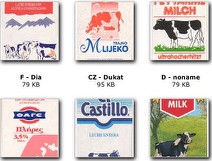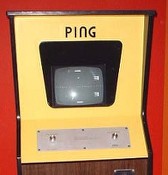| 1. |
We've had Napster since 1909, and the sky still hasn't fallen. In 1909, residents of Wilmington, DE, were able to subscribe to an online music service that piped phonograph recordings over their telephone lines and through loudspeakers. 1909 was one year after the sheet music publishers were told to get bent by Congress: see, they'd grown alarmed at the prevalance of unauthorized piano rolls and had asked the Congress for a Broadcast-Flag-like regime that would let them veto any new music tech that would endanger their business (like online music delivery), making it illegal. Congress told them to get lost. Good thing we rescued those idiots from themselves back in 1908 -- can you imagine a music industry where the most lucrative product in the market was sheet music?
It's a pattern: the Vaudeville artists sued Marconi over the radio -- which made them rich. The movie studios boycotted TV until Disney sold out to get the funds for Disneyland -- and TV rights made the studios rich. Jack Valenti told Congress that the VCR was the Boston Strangler of the film industry, and then it doubled his income through pre-recorded tape sales and rentals.
Now, of course, Congress has given up on saving the entertainment industry -- and us -- from itself. With the Broadcast Flag, new technologies will only come into the market if they don't disrupt the industries built on the old ones. And with the WIPO Broadcast Treaty in the works, it's fruitless to pray for some technology safe-haven where we'll be able to develop our gear in peace, far from the short-sighted, greedy lunacy of the entertainment companies. The FCC should be ashamed of itself.
When plugged up to a phonograph the subscriber's line is automatically made busy on the automatic switches with which the Wilmington exchange is equipped. Several lines can be connected to the same machine at the same time, if more than one happens to call for the same selection.
Each musical subscriber is supplied with a special directory giving names and numbers of records, and the call number of the music department. When it is desired to entertain a party of friends, the user calls the music department and requests that a certain number be played. He releases and proceeds to fix the megaphone in position. At the same time the music operator plugs up a free phonograph to his line, slips on the record and starts the machine. At the conclusion of the piece the connection is pulled down, unless more performances have been requested.
Link
(via Smart Mobs) |




